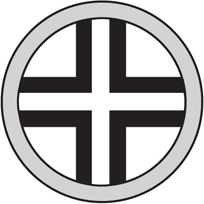
• Look for the word Farmacia or the sign at right.
• Prescription medicines are available only at a drugstore.

• Some nonprescription drugs can be bought at a supermarket or department store.
• Try the drugstore before going to the doctor; pharmacists are usually qualified to treat minor health problems.
• Drugstores take turns staying open all night and on Sundays. A notice on the door titled Farmacie di turno or Servizio notturno gives the hours of operation.
• Some toiletries can also be bought at a profumeria, but they will be more expensive there.
• For finding a drugstore, see p. 10.
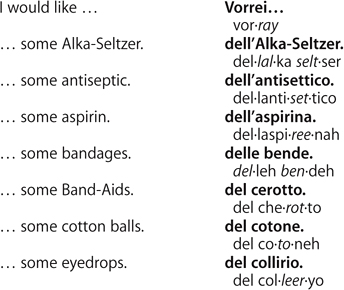
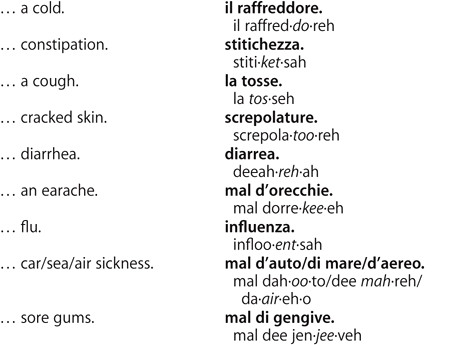
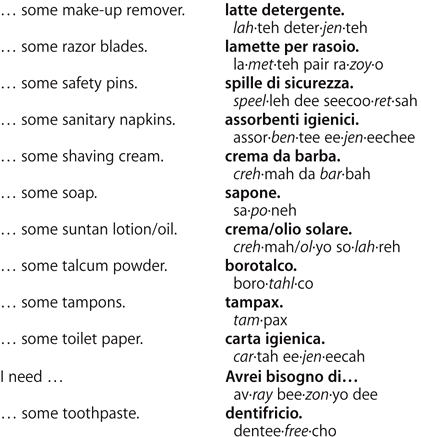
For other essential expressions, see “Shop Talk,” p. 43.
• Here are other places to shop at and signs to look for.

• The main department stores in Italy are the following.
Coin
Rinascente
Upim
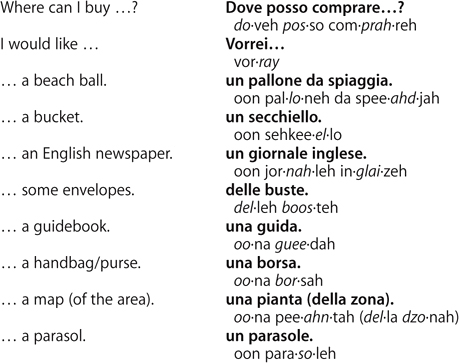
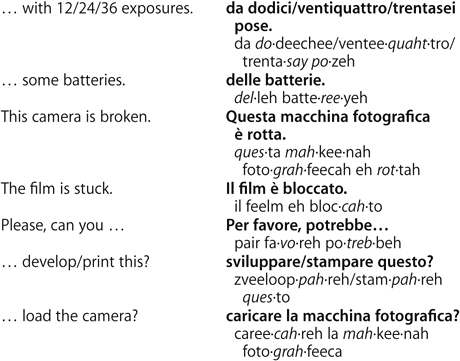
For other essential expressions, see “Shop Talk,” p. 43.
• Tobacco is sold where you see the sign at right.
• For asking if there is a tobacco shop nearby, see p. 12.
• All tobacco shops sell postage stamps and salt.
• A tobacco shop is sometimes part of a café/bar, a stationery store (cartoleria), or a newsstand.
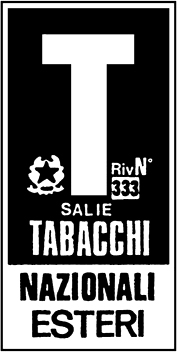
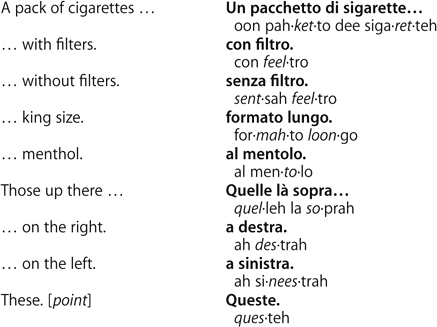

For other essential expressions, see “Shop Talk,” p. 43.
• Look for the following signs.

• Don’t buy clothing without being measured first or trying the item on.
• Don’t rely solely on conversion charts of clothing sizes (see p. 127).
• If you are buying clothing for someone else, take his or her measurements with you.
• The department stores Coin, Rinascente, and Upim all sell clothes and shoes.
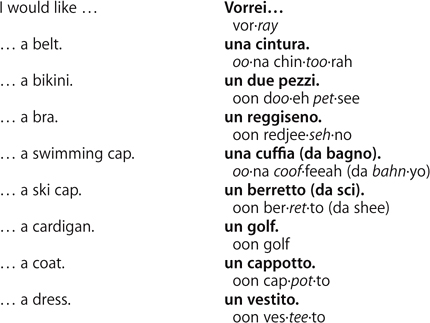
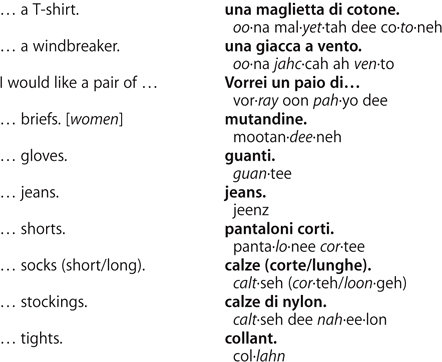
For numbers, see p. 113.
For clothing sizes, see p. 127.
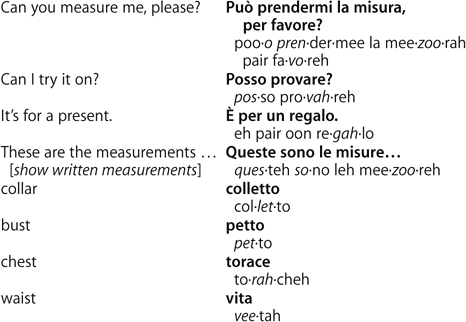
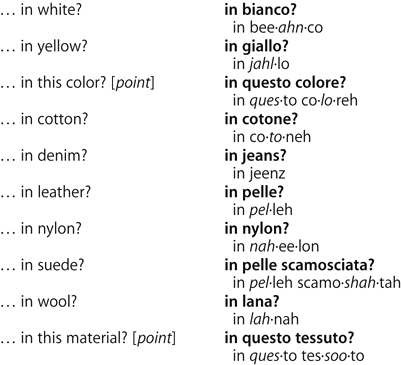
For other essential expressions, see “Shop Talk,” p. 43.
• Look for the following shops and signs.

• In the supermarket, look for the following sign.

• For asking directions to a shop, see p. 9.
• At a campsite, try its shop first.

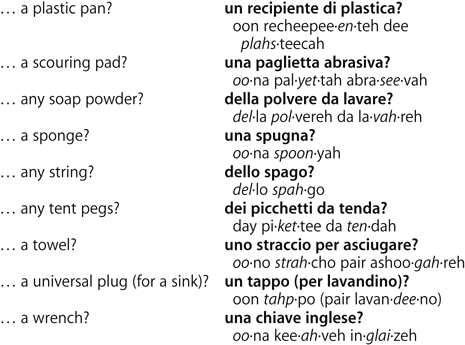
For other essential expressions, see “Shop Talk,” p. 43.